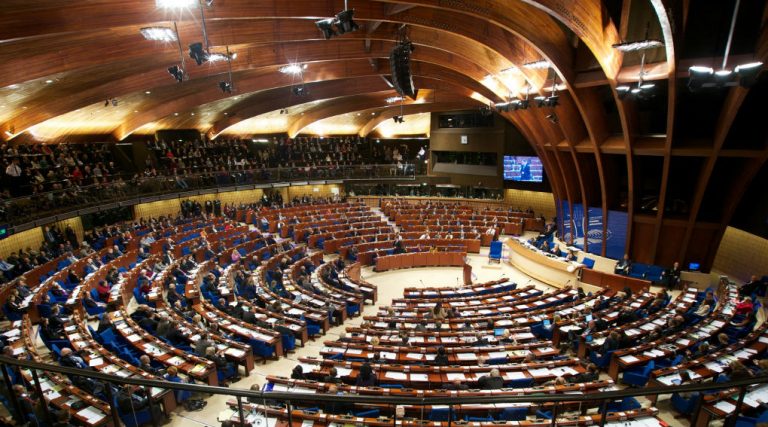Russia is trying to set a precedent participating in the work of international organizations through the representatives of unrecognized states. If such plan is pursued, separatist movements around the world, especially in Europe, will be given a free hand to speed up their work and lay claim to the international platform and subjectivity in foreign policy.
Ulrich Oehme, the Russian lobbyist in the Bundestag, launched an initiative at the Council of Europe aimed to establish talks between the unrecognized republics of Donbas, Ukraine and the central government in Kiev, as well as to give Donetsk and Luhansk the opportunity to set out their position at the Council of Europe. The PACE member believes that a very important participant – separate areas of Donetsk and Lugansk regions – is absent” in the talks between Germany, France, Russia and Ukraine. An initiative to bring them into talks was also discussed within the Russian-related Alternative for Germany (AfD) faction. According to Ulrich Oehme,
he intends to bring in other Bundestag and PACE members on the initiative.
This initiative does not come from an AfD member. He voiced and promotes Russia’s strategy to legitimize the occupied and unrecognized territories. Mr. Oehme is likely to be used “unwittingly”, although the level of his contacts and ties in Russia suggests the possibility to satisfy the Russian leadership’s requests directly.
According to Ukrainian diplomatic circles in the United States and Canada, this approach will give an opportunity to present puppet regimes in the east of Ukraine as foreign political actors and bring the problem of war in Ukraine to the level of internal conflict. This will enable Russia to steer clear of the charges on occupying the territories and transfer similar rhetoric to other territories occupied by Russia, for example, Abkhazia, South Ossetia and Transnistria.
In the past 5 years Moscow has been actively and openly supporting the separatist regimes in Europe, Africa and America, providing them with a platform in Russia.
The Kremlin believes this will open the way to get out of sanctions and set a precedent where further possible acts of aggression against neighboring countries, for example, Belarus or the continued military expansion in Ukraine, will be considered in the scope of an internal conflict in these countries.
However, in an interview with lansinginstitute.org experts, representatives of the security and defense sectors of European countries, France, Spain, Romania and Italy in particular, voiced concerns that such strategy would enable Russia to influence the European policy more effectively through bringing the separatist movements to international platforms and subjectifying them in EU countries, for example, in Catalonia or Corsica. Therefore, the strategic plans voiced by Ulrich Oehme are obviously targeting not Ukraine but are meant to create a fragmentation mechanism for the Western European states, Africa and America using international and regional organizations. As soon as the separatist movements get a “voice” or the right to speak at such organizations as PACE, the Council of Europe or the United Nations and to convey “their own opinions”, this will set a precedent where such movements and groups will be empowered to put pressure on governments, and foreign states will be given a free hand to destabilize the countries by hybrid methods. For example, Moscow may retry to destabilize the situation in Romania more actively by bringing the conditionally political “activists” representing the Székely Land, territory inhabited by the Hungarian minority to the regional platforms of the PACE and the Council of Europe. The Kremlin may also test scenarios of internal conflicts in NATO member states by setting introductory notes hampering the Alliance (or the EU) forces to resolve the problem and raising doubts about the effectiveness of the main security institutions in the region and in the world.



